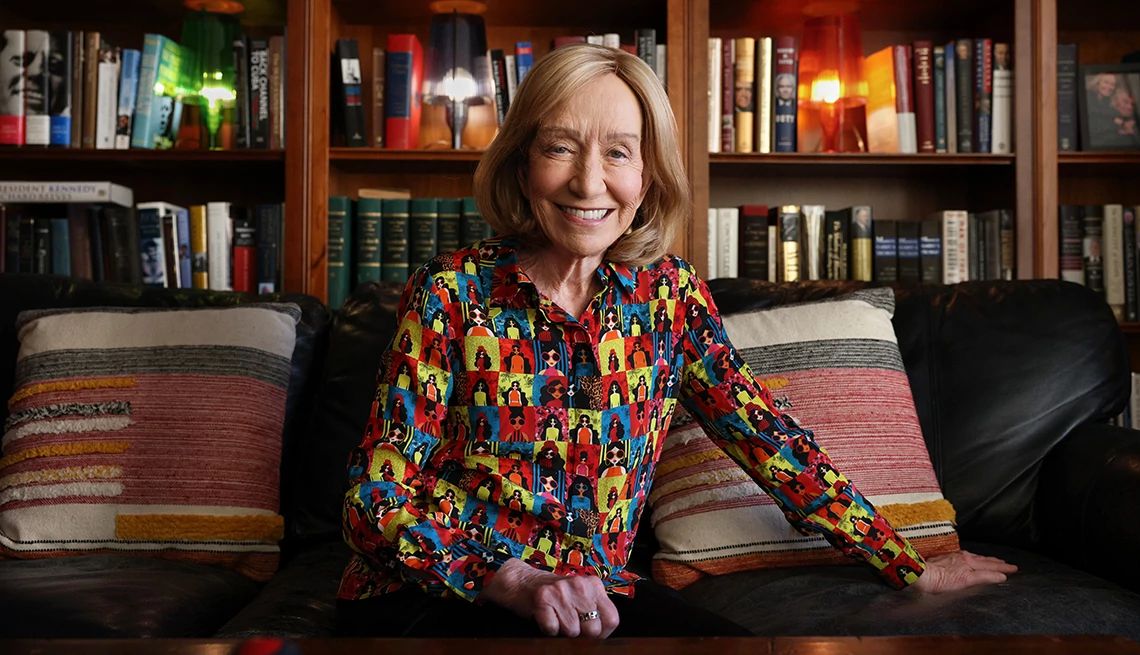
Renowned historian writes book on divided america of 1960s | members only access
- Select a language for the TTS:
- UK English Female
- UK English Male
- US English Female
- US English Male
- Australian Female
- Australian Male
- Language selected: (auto detect) - EN
Play all audios:

Prize-winning historian Doris Kearns Goodwin, author of histories such as _No Ordinary Time_, _Team of Rivals_ and _The Bully Pulpit_, has turned to a more personal story for her latest book
— _An Unfinished Love Story: A Personal History of the 1960s_. Her late husband, Dick Goodwin, was a presidential aide and speechwriter with an insider’s seat in the John F. Kennedy and
Lyndon B. Johnson White Houses — sometimes a little too close, as during a skinny-dipping policy meeting in the White House pool with LBJ. Goodwin has woven her recollections of those days
along with some of her husband’s private writings into a look at America during a time of deep divisions along racial and generational lines. We talk with her about those times and what we
can apply to our own divided era. Your new book, _An Unfinished Love Story_, is a personal look back at the turmoil of the 1960s that began when you and your late husband (and presidential
adviser), Dick Goodwin, decided to go through 300-plus boxes of material he’d saved from his speechwriting days with John F. Kennedy and Lyndon B. Johnson. We spent weekends doing it,
reliving a decade. I was stunned by the dimensions of what he’d kept. He was everywhere you’d want to be as markers of the ’60s. He was with Kennedy on the plane [during his presidential
campaign] and at the White House the night JFK’s body was brought back from Dallas. He was with LBJ at the great moments of the Great Society, then got involved with the antiwar movement.
WHAT DID YOU FIND IN THOSE BOXES? I knew all the things that had happened to him. His first wife died, then JFK was assassinated. Then Martin Luther King Jr. and Bobby Kennedy were
assassinated, and Dick’s dreams of continuing the Great Society were cut short. But when we went through the boxes, something happened to him. It was almost miraculous. He recovered his
sense of joy. Looking back on his life, I think he felt that what he had worked on had mattered. DID YOUR VIEWS ON JFK AND LBJ CONFLICT? Dick was loyal to the Kennedys always. It was partly
because that’s where his first understanding of public life came from, in his 20s. The Kennedy family was part of his upbringing. In my 20s, I worked with LBJ and became part of his family.
So when we talked about those men over the course of our marriage, we often sparred with each other. Some poll would come out ranking JFK higher than LBJ, and I’d say, “That’s not fair. LBJ
got everything through Congress that JFK tried to get through — the Civil Rights Act, the Voting Rights Act, Medicare and Medicaid.” And Dick would answer, “Yes, but if JFK had been in
office, what would have happened with the Vietnam War?”
